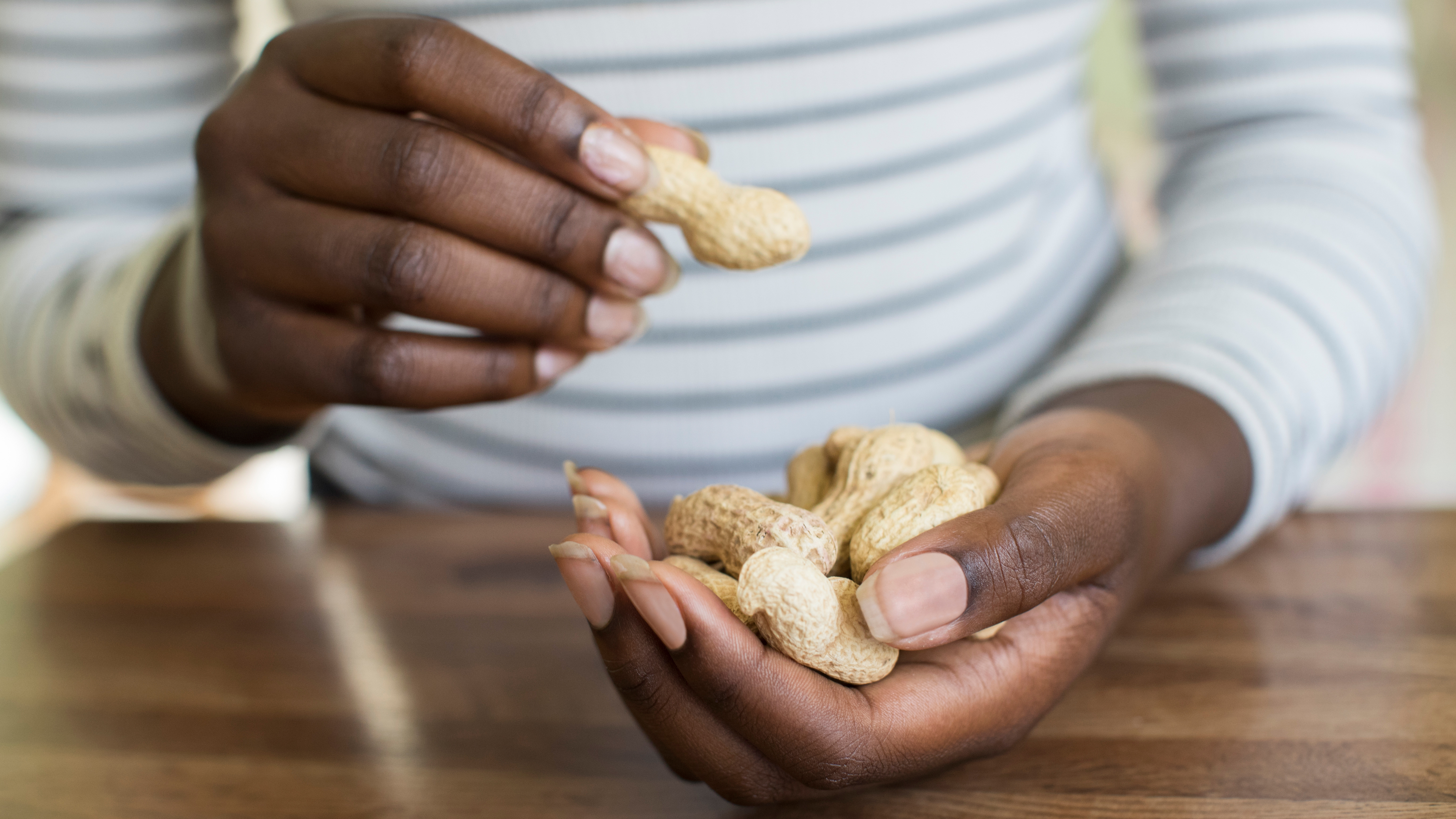A New Test For Peanut Allergies Won't Require You To, You Know, Eat Peanuts
Scientists in the United Kingdom have developed a blood test to identify peanut allergies, an advance that could eliminate testing that requires one to eat peanuts in order to detect allergies to peanuts—so basically, you'd get bloodwork done rather than mowing on a peanut and waiting to see if you approach death. Sounds like a win.
Newsweek reports on a study, originally published in the Journal of Allergy and Clinical Immunology, that found that the the Mast Activation Test (MAT) boasts a 98 percent accuracy rate. Mast cells are "a type of white blood cell activated when IgE is in the blood plasma." Their presence results in biomarkers associated with allergens, which can be identified in a lab, and not by watching a patient start to swell like an air mattress attached to a quick-fill pump. The study asserts that the test would limit the number of false-positives, which occur "when the test suggests a person is allergic, even though they can eat nuts without suffering symptoms." That's good news for patients. Not bad, science.
The test could be administered between the two tests currently used to diagnose peanut allergies: the skin-prick test, which "can fail to spot the difference between a sensitivity and potentially dangerous food allergy, [leading] to false-positives and over-diagnosis," and the costly oral food challenge (or OFC), which "involves gradually feeding a patient incrementally larger amounts of peanuts, and must be carried out in a controlled hospital setting because of the risk of potentially life-threatening anaphylactic shock."
The new test could be rolled out in the U.K. in the next few years. But while one might call the OFC test a nightmarescape, it has its advantages. As allergy expert Dr. Susan Leech, told Newsweek:
"The gold standard for diagnosing peanut allergies remains the oral food challenge... There are a lot of advantages to the patient in performing the challenge–if there is no reaction, then the child can eat peanuts, but even if they do react, the food challenge provides information about what would happen if the child was to have a reaction, and gives an indication of what the threshold for the reaction would be."
Sorry to end on a down note, but you know. Peanut allergies. Not a blast.
